-
 UV11W High-efficiency Intelligent UV Water Sterilizer Cat:Ultraviolet Water Sterilizer
UV11W High-efficiency Intelligent UV Water Sterilizer Cat:Ultraviolet Water SterilizerThe UV11W High-efficiency Intelligent UV Water Sterilizer is an advanced water purification system that offers convenience and reliability. This steri...
See Details -
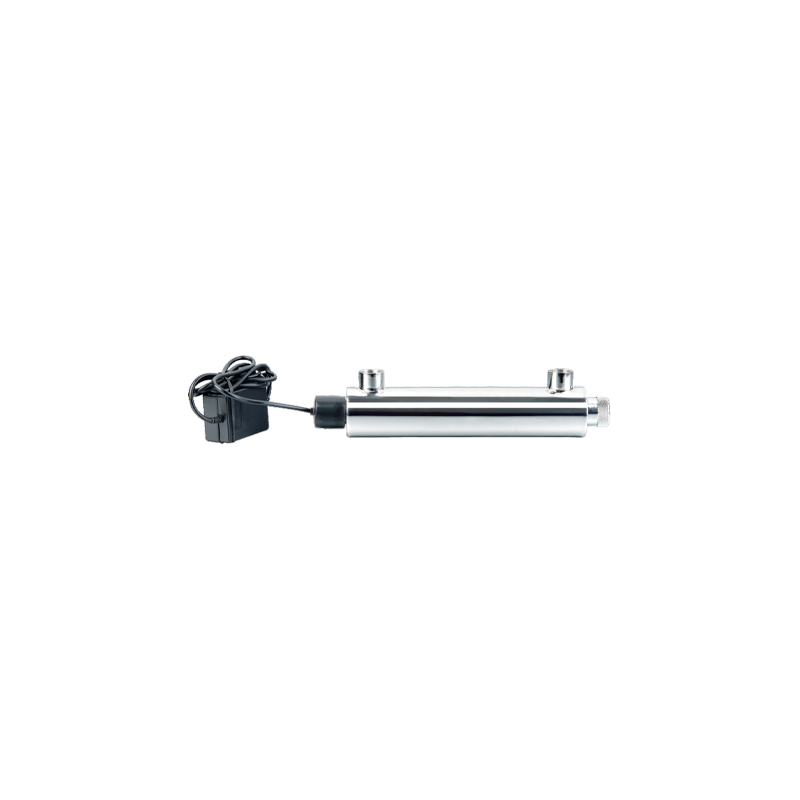 UV16W-A Household Stainless Steel UV Water Sterilizer Cat:Ultraviolet Water Sterilizer
UV16W-A Household Stainless Steel UV Water Sterilizer Cat:Ultraviolet Water SterilizerThe UV16W-A Household Stainless Steel UV Water Sterilizer is an innovative solution for ensuring safe and pure water in your home. Designed with durab...
See Details -
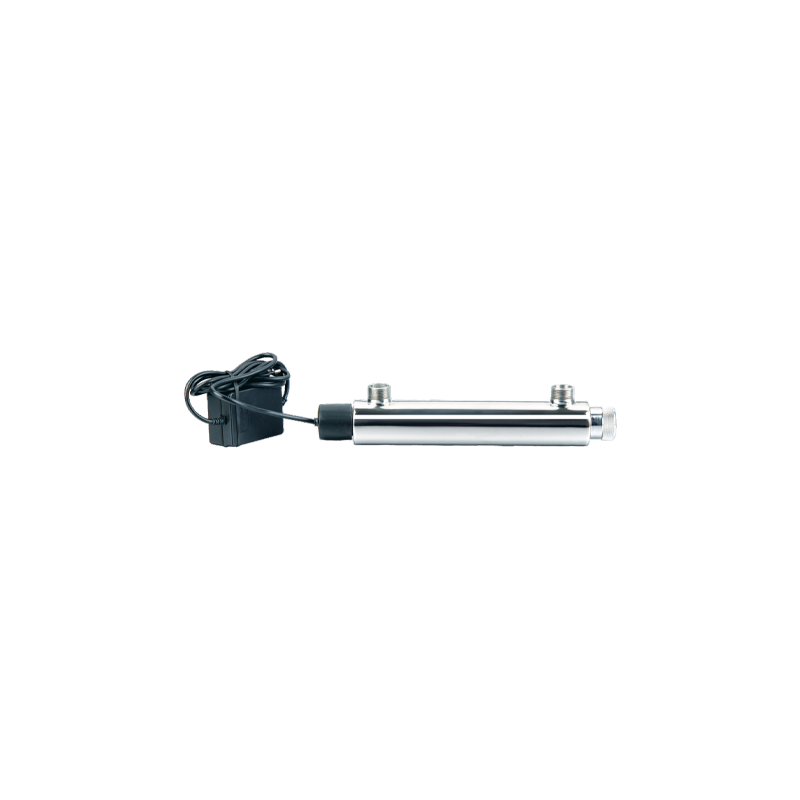 UV16W-B 304 Stainless Steel Water Purifier Ultraviolet Water Sterilizer Cat:Ultraviolet Water Sterilizer
UV16W-B 304 Stainless Steel Water Purifier Ultraviolet Water Sterilizer Cat:Ultraviolet Water SterilizerUV16W-B 304 Stainless Steel Water Purifier Ultraviolet Water Sterilizer is an efficient water treatment equipment based on advanced ultraviolet disinf...
See Details -
 UV25W Stainless Steel Ultrafiltration Pre-Filtration UV Sterilizers For Water Cat:Ultraviolet Water Sterilizer
UV25W Stainless Steel Ultrafiltration Pre-Filtration UV Sterilizers For Water Cat:Ultraviolet Water SterilizerUV25W Stainless Steel Ultrafiltration Pre-Filtration UV Sterilizers For Water uses high-quality stainless steel materials, which have superb corrosion...
See Details -
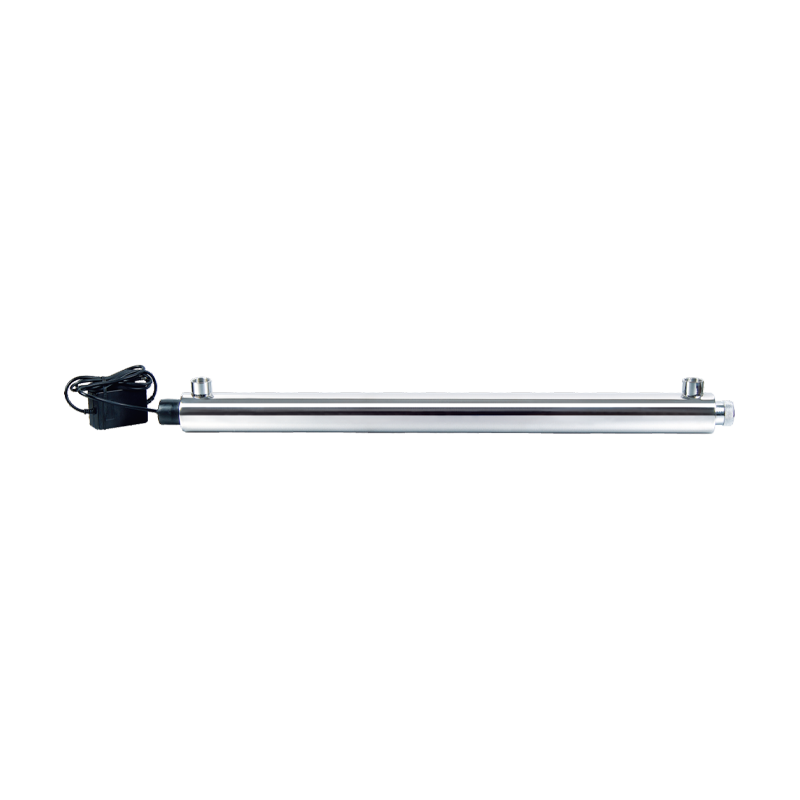 UV30W-55W Automatic Ultraviolet Sterilizer UV Filtration For Drinking Water Cat:Ultraviolet Water Sterilizer
UV30W-55W Automatic Ultraviolet Sterilizer UV Filtration For Drinking Water Cat:Ultraviolet Water SterilizerThe core advantage of UV30W-55W Automatic Ultraviolet Sterilizer UV Filtration For Drinking Water lies in its efficient and rapid disinfection capabil...
See Details -
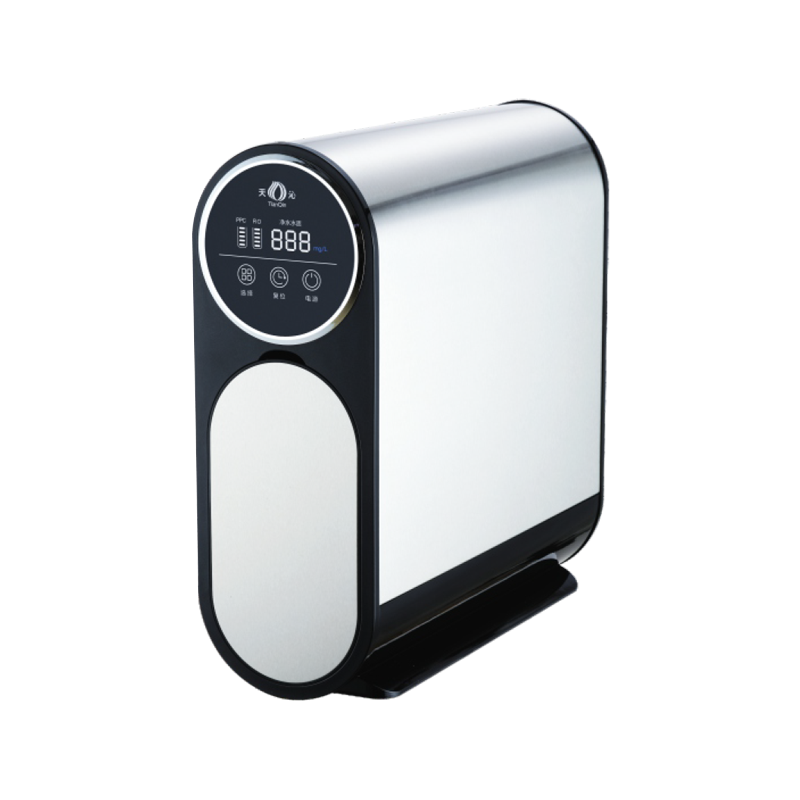 TQ-R03 Stainless Steel Booster Double Water Full Effect RO Water Purifier Cat:Stainless Steel Ro System
TQ-R03 Stainless Steel Booster Double Water Full Effect RO Water Purifier Cat:Stainless Steel Ro SystemTQ-R03 Stainless Steel Booster Double Water Full Effect RO Water Purifier is a household water purification device that combines efficient water purif...
See Details -
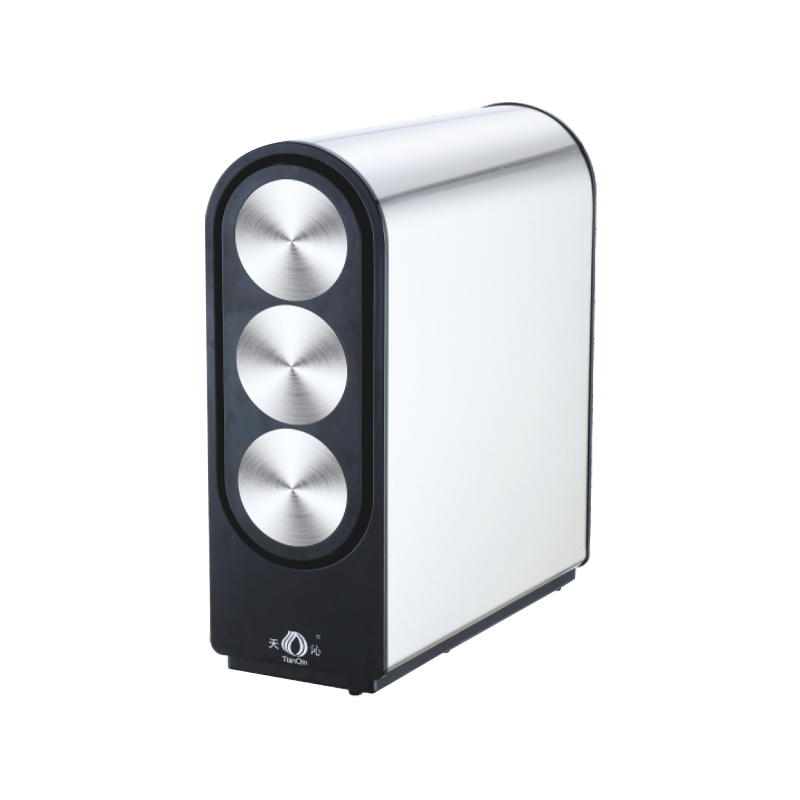 TQ-R05 Multifunctional Water Purification Source RO Water Purifier Cat:Stainless Steel Ro System
TQ-R05 Multifunctional Water Purification Source RO Water Purifier Cat:Stainless Steel Ro SystemThe TQ-R05 Multifunctional Water Purification Source RO Water Purifier is an advanced, versatile water purification solution designed for households a...
See Details -
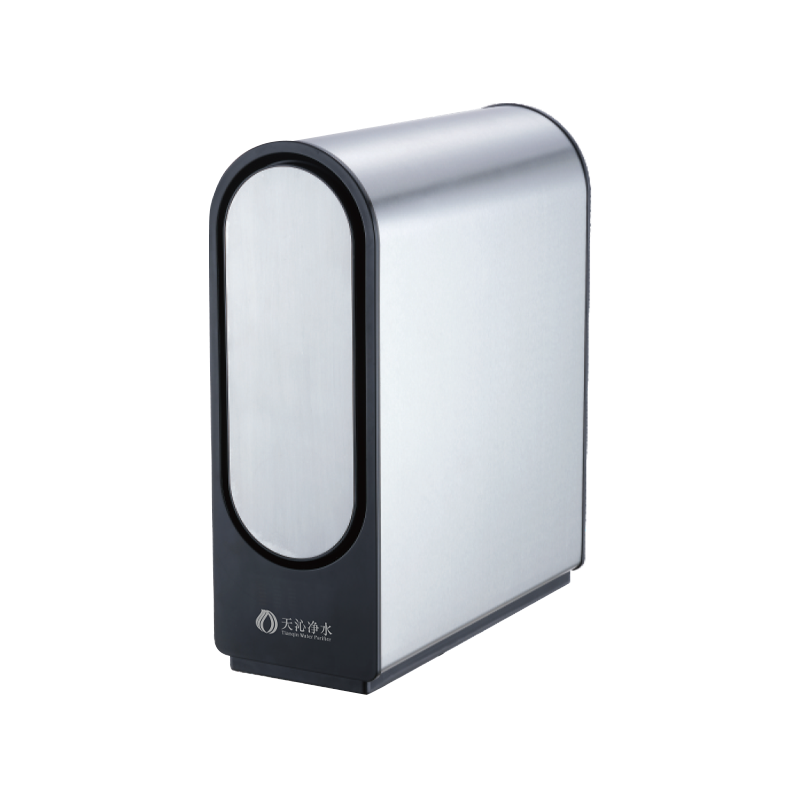 TQ-R06 Stainless Steel Environmentally Friendly RO Water Purifier Cat:Stainless Steel Ro System
TQ-R06 Stainless Steel Environmentally Friendly RO Water Purifier Cat:Stainless Steel Ro SystemThe TQ-R06 Stainless Steel Environmentally Friendly RO Water Purifier combines advanced RO filtration technology, durable stainless steel housing, and...
See Details -
 Stainless Steel Pure Double Water Pipe Water Purifier Cat:Stainless Steel Pipeline Water Purifier
Stainless Steel Pure Double Water Pipe Water Purifier Cat:Stainless Steel Pipeline Water PurifierThe Stainless Steel Pure Double Water Pipe Water Purifier is an advanced water purification system designed to provide dual-mode purified water with e...
See Details -
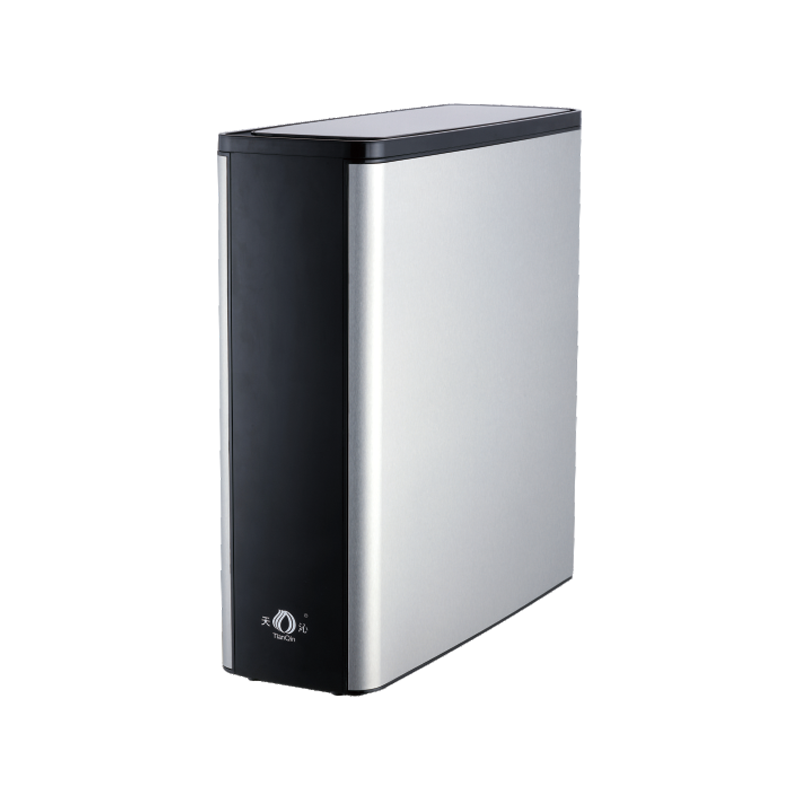 TQ-R08 Stainless Steel High-Flow RO Water Filter Cat:Stainless Steel Ro System
TQ-R08 Stainless Steel High-Flow RO Water Filter Cat:Stainless Steel Ro SystemThe Stainless Steel High-Flow RO Water Filter (TQ-R08) provides a powerful and effective solution for purifying drinking water, combining advanced rev...
See Details
Why do more and more families choose to install central water filters?
With the continuous improvement of people's health awareness, water quality issues have become a concern that cannot be ignored by modern families. Whether in cities or rural areas, the prevalence of water quality issues and their potential hazards have caused widespread discussion. In this context, more and more families are beginning to choose to install central water filters to ensure the cleanliness and safety of water.
Content
The prevalence of water quality issues in household water
The severe situation of water source pollution
With the acceleration of industrialization and the intensification of agricultural pollution, the problem of water source pollution has become more and more serious. The water sources of many cities, especially rivers and lakes, have gradually deteriorated due to the discharge of industrial wastewater, agricultural fertilizers and domestic sewage. Even if tap water has been treated by a water purification plant, harmful substances may still remain, especially some heavy metals (such as lead, mercury), chlorides, bacteria and viruses. The degree of water source pollution in some areas is relatively serious, and the water quality cannot meet the full drinking standard. The potential health risks cannot be ignored.
| Description | Y2500 | Y3000 |
| L/H | 2.5T | 3T |
| Filter Cartridge | Activated carbon+KDF+quartz sand etc. | Activated carbon+KDF+quartz sand etc. |
| Connector Type | 3/4" | 3/4" |
| Package Dimension(cm) | 290×290×840 | 290×290×1170 |
| Dimension | Ø250×H700 | Ø250×H1050 |
Secondary pollution caused by aging water pipes
Even if tap water reaches the tap of a household from the water plant, the water quality still faces secondary pollution from aging pipes. As the pipes age, they are prone to damage, rust, and scale accumulation, which may lead to secondary pollution of water quality. Long-term use of these contaminated water sources may increase the risk of waterborne diseases, especially for children, the elderly and other people with low immunity.
Complexity of water quality and household water demand
The diversity of household daily water demand also exacerbates the complexity of water quality issues. There are many kinds of harmful substances in water, including chlorine, sediment, heavy metals, bacteria, etc. Ordinary faucet filters can usually only solve a single water quality problem, such as removing odor or filtering chlorine, but the effect on improving the overall water quality is limited. Residual minerals in water (such as calcium and magnesium ions in hard water) may also cause scale deposition, affect the service life of household appliances, and make the taste of water worse. Based on these problems, more and more families are beginning to pay attention to solutions for whole-house water purification.
Advantages and solutions of central water filter
Compared with traditional single-point water filtration equipment, central water filter solves many household water quality problems through centralized whole-house water purification. Its advantages are not only reflected in its comprehensive water purification function, but also in its long-term reliability and cost savings.
All-round water purification capabilities
The biggest advantage of central water filter is that it can provide all-round water purification for the whole family. Whether it is kitchen water, drinking water, shower water, laundry water, or cleaning water, all water sources will be filtered by the system to ensure that every drop of water meets health standards. Traditional household filters can usually only filter water at a specific point, while central water filter is installed at the entrance of the main water pipe in the home to filter the water source of the whole family uniformly, avoiding the limitations of traditional filtering equipment.
This system can remove harmful substances in water through multiple filtration technologies, such as activated carbon filtration, reverse osmosis technology, and ultraviolet disinfection. Specifically, reverse osmosis technology can effectively remove heavy metals, bacteria and viruses in water, activated carbon filtration can remove odors, chlorine and other chemicals in water, and ultraviolet disinfection can further kill bacteria and microorganisms in water. In addition, water softening technology can solve the problem of hard water, prevent scale deposition, and avoid many troubles caused by household water use.
Improve health protection and reduce the risk of disease
Through comprehensive water purification, central water filter effectively removes harmful substances in water, providing family members with healthier drinking water and living water. For example, long-term drinking of water sources containing heavy metals (such as lead, mercury), chlorine and other substances may have adverse effects on health and lead to a variety of diseases. After using central water filter, all water sources in the home can be thoroughly purified, avoiding the potential threat of water pollution to the health of family members.
Especially for children, the elderly and people with weak immunity in the family, the impact of water quality problems is particularly serious. Installing central water filter can not only effectively eliminate bacteria and viruses in the water, but also remove chemicals that may be harmful to the body, improving the overall health of family members. It can be said that central water filter is a long-term investment in family health.
Save household expenses and improve water use efficiency
The economic benefits of central water filter should not be ignored. Although the initial equipment installation cost is high, in the long run, the household water expenditure will be greatly reduced. First, families no longer need to buy bottled water or large barrels of water, avoiding the cost of frequent bottled water purchases and reducing living expenses. Secondly, the use of filtered water can extend the service life of household appliances such as faucets, water heaters, and washing machines. Filtered water reduces the deposition of scale, reduces the maintenance burden of household appliances, and reduces the cost of repairing and replacing equipment.
In addition, due to the cleaner water quality, the health of family members has improved, and medical expenses are expected to be reduced. For families who use central water filters for a long time, this is undoubtedly a long-term economic benefit worth investing in.
Environmental protection function, reducing plastic pollution
The environmental protection advantages of central water filters are also receiving more and more attention. Traditional bottled water consumes a large number of plastic bottles every year. If these plastic bottles are not properly recycled, they will eventually enter the environment and cause serious pollution. Central water filters replace bottled water by filtering tap water, reducing dependence on bottled water and significantly reducing the generation of plastic waste, which is in line with the trend of modern families paying more and more attention to environmental protection.
In the long run, central water filter can not only provide clean water for families, but also make positive contributions to global environmental protection, and is one of the effective measures to deal with the problem of plastic pollution.
Reduce secondary pollution and ensure stable water quality
After installing central water filter, the water used by the whole family will be filtered through a unified water pipe, thus avoiding the secondary pollution that may be caused by the use of traditional household filters at multiple water points. For example, during the filtering process, single-point filtering equipment is often affected by factors such as water pipe material, installation environment, and filter replacement cycle, resulting in unstable water quality. Central water filter purifies household water quality from the source, and the filtering effect is more stable and lasting, ensuring that every drop of water maintains high quality.



 English
English 中文简体
中文简体




